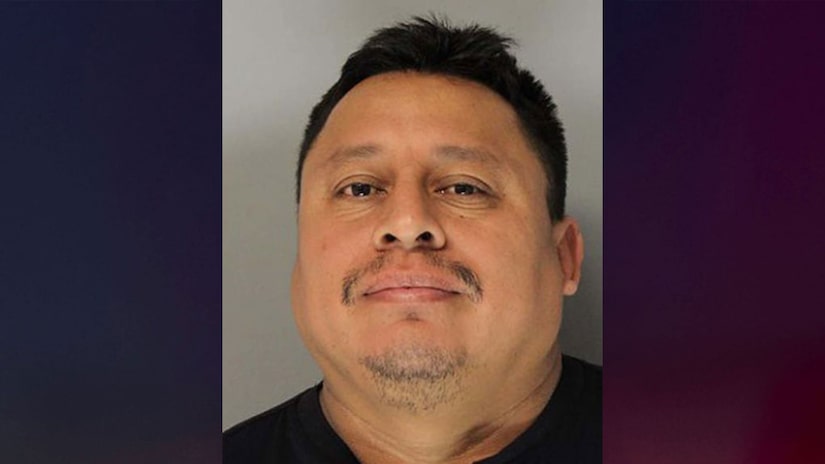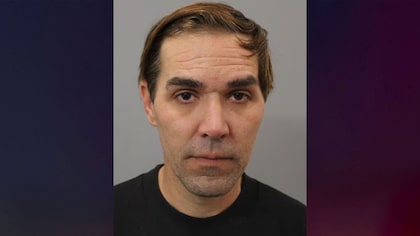Former NFL star finds redemption after losing family in tragic twist
03/25/2016 2:08 pm PDT
He was an unstoppable star defensive back who played for the National Football League. And hometown fans in Los Angeles were absolutely wild about him. Kermit Alexander, a kid who grew up on the gritty, hard-knock streets of Watts in Los Angeles, had escaped the life of crime to live his dream.
But then everything Kermit believed in and his whole world of celebrity was suddenly sidelined by an act of unthinkable brutality.
On a searing hot Friday morning in August 1984, evil thundered into his mother's house. His mom Ebora, nicknamed "Madee" for "Mother Dear," his sister Dietra, and his two young nephews Damani, 13, and Damon, 8, are gunned down execution-style. The boys were still in their beds.
Kermit's mother was the first to come face to face with the executioner. She was shot three times. Dietra was shot three times. Each of the boys was shot through the head.
Another nephew Ivan hides in the closet while Kermit's younger brother Neal scuffles with the killer and slams the gun out of his hand. The killer lands on a trunk by the door but wrestles back the weapon. The gunman hits Neal in the head with the gun and runs out of the house.
"Normally you don't live through that type of devastation I went through emotionally," said Kermit Alexander. "I went into a period of isolation for years."
Every time Kermit closes his eyes, he sees his mothers face and the horror plays out in his head.
"She sacrificed her whole life for her family," said Kermit. "She disciplined us. We were going to be good citizens or else. I'm sorry, I'm getting a little emotional but when I talk about family that's the only time I do get emotional."
Incredibly, Kermit was supposed to have come over to his mother's house for breakfast that morning. He had landed a gig as a sports commentator and he wanted to surprise her with the good news. Instead that day of carnage would rip out his soul and turn him into a vigilante bent on revenge.
"I was the shadow figure roaming the streets interrogating, intimidating, assaulting, being as vicious as I had to be to get the information, and it became very apparent that something terrible was going to happen if I ever found them," said Kermit.
At first, police investigators eyed Kermit as a person of interest.
Kermit's family is overcome with grief, and living in fear.
"We didn't know if the rest of the family was still being targeted," said Kermit. "We didn't know at the funeral if the rest of us were going to be killed. So we had a heavy police presence and it was devastating because we were all on edge. Because I was the focal point of the family everyone looked at me. As a result the rest of my family accused me of having my family butchered."
Kermit was consumed with guilt for not being there to protect his family. Their slaughter consumed him, he wanted vengeance, and he wasn't going to wait for cops to catch the maniacs who did it. Kermit set out to find his own street justice, vowing to become a killer himself if he had to.
"So I started roaming these streets looking for the killers, using whatever I had in order to get the information that I needed to find them," said Kermit. "I knew the streets, I knew the 'hood, I knew the gangsters, but nobody knew anything. And to my chagrin, I brutalized a lot of people trying to get that information, and they didn't know."
On the street he had heard a Crips gang member had been bragging about "blowing a woman's head off." Kermit went ballistic trying to track him down. But cops warned him to cool his heels.
"I am walking the streets looking for the killers of my family and not caring about the law. I am a former probation officer and I am not caring about the law," said Kermit. "I was armed physically and emotionally, and my job was to find out who it was who did this and get rid of them, period. I knew if I found them I probably would not live through it."
Police want to avoid bloodshed. So they hauled Kermit in and offer him an unusual deal.
"So they said 'We can't stop this guy, we can assist him,' and what the proviso for insisting is 'Once you find the person you are looking for, then you have to give us first crack at him,'" said Kermit.
Kermit is barely in possession of his senses when cops arrest an 18-year-old hit-man from the notorious Crips gang. He had been identified by a palm print left on a trunk in the bedroom during a struggle with Kermit's brother Neal.
"When we found the killer we had his handprint in the house, that put him in the home," said Kermit. "It was Neal fighting with him that saved his life and got us the killer. If he didn't wrestle with him, we wouldn't have found out who the killer was."
But what chilled Kermit to the bone was that the accused killer was Tiequon Cox, someone he had known as a kid. Kermit even watched him play Pee Wee Football, a troubled 10-year-old at the time who was unable to rein in his rage on the field.
"He notices this one kid and he had incredible skills and he also had an incredible temper, slap teammates upside the head if they didn't block properly, and throw the ball at the ref's feet. Yelled at people on the sidelines," said Alex Gerould, a criminologist who co-wrote The Valley of the Shadow of Death about Kermit's story.
"Kermit said, 'My God that kid's a talent, that kid could be a star, but somebody's got to help him, somebody's got to do something,'" said Gerould. "Everybody nodded their head and nobody, including Kermit, did a thing. That sent Kermit into another spiral of guilt."
Incredibly, Kermit shoulders some of the blame for Cox murdering his family.
"I had seen a young man that was desperately in need of help and I ignored it," said Kermit. "It's sad. I feel some responsibility, it's not my fault but as a community leader I have some responsibility for my children that need help and never get it. I told people he needed help. I showed people the kid I am talking about, but I didn't do anything. So I had to pay the price and ultimately my family had to pay the price."
"He says he now hears his dead mother's voice ringing in his ears, 'Kermit, why didn't you do something for that boy?'" said Gerould.
"What happens when you neglect children, they try and grow up on their own, and they usually go with the strongest influence in their lives," said Kermit. "This particular young man was enamored with a gang. He was a talented athlete, but he was incorrigible. He didn't like the rule, he didn't want to follow the rule, he wanted to do it his way and he ended up in a gang."
Cops were still stumped for a motive to the murders. One theory was a botched robbery, but nothing had been taken from the home.
"They thought it was a serial killer, they thought Kermit had something to do with it, they thought it was a family squabble, all of these were considered but nothing added up," said Gerould.
Then it all came together when cops zeroed in on a murder-for-hire plot. A businessman had paid Cox to wipe out a woman who had been shot and paralyzed in his bar. She was suing the bar owner for $2 million. Police say he wanted the lawsuit and the woman to go away for good. The Crips' best hit-man, Tiequon Cox, was paid $3,000. But Cox was illiterate, unable to read. And tragically he got the address wrong.
"The sad thing about it is because of his illiteracy, he went to the wrong house," said Kermit. "The wrong house he went to was mine, and he destroyed my family."
The trigger-happy Cox had targeted the wrong home that was on the same block where Kermit's mother lived.
At his murder trial, Cox was convicted and sentenced to death. Prison guards say to this day that he is the most dangerous man on San Quentin's death row, a stone-cold killer who has never shown a hint of remorse.
"I don't know how I lived through it except through prayer," said Kermit. "The amount of responsibility I was raised to exhibit as a leader in my family, all the things that happened to them that I can't prevent weighs on you daily.
"I would have to apologize to [Cox]. And the reason that I would have to apologize to him is that at one point I was in the position to help him and I noted he needed help," said Kermit. "But I didn't do anything, and I have to apologize to him for that. Because I'm part of the community that he was raised in, and we're responsible for letting this kid get out of hand, and I'm part of that. So when he ended up in my mother's kitchen, I'm responsible 'cause I didn't do anything to avert that."
Kermit says he has forgiven the murderous trespasses of Tiequon Cox. But he still wants to see the state put Cox put to death.
The nightmare should have been over for Kermit Alexander. After all, the gunman who had murdered his mother, sister and two nephews was on death row in San Quentin, where he's been rotting for the past three decades. Kermit may have forgiven this monster, but he still wants California to lift the moratorium on the death penalty and execute him.
"We have to go all the way we can't change our minds in the middle of it. We can't stop. As long as the rule of law is what it is we have to live with it," said Kermit. "The thing that changed my life, that stopped my pursuing the streets for this kid was that there was a law that said he would be responsible when he was caught. If that law had not been in place, I would have been dead because I would have kept going until I found him or been killed. So but for the rule of law, I'm still here. I stepped back and allowed the law to take its effect."
The years continued to take their toll on Kermit. He remained a lost soul, anger and guilt his guiding light. This once-proud NFL star was living out of his car.
Kermit shut everybody out. That is until he met Tami.
"We just clicked. He laughed at my jokes, he actually laughed at my jokes. I think was what made me fall in love with him," said Tami Alexander.
It would take another twist of fate before Kermit's jagged wounds would begin to heal.
"When he asked me to marry him I said no," said Tami. "I said no because I went to Haiti and i fell in love with a little boy named Clifton, and that's where my life is now."
Tami was trying to adopt a 6-year-old waif she had met while working with a Christian relief group there. So Kermit went to Haiti.
Kermit never imagined that he would find redemption in a little orphan in the unlikeliest of places. And it was love at first sight.
"He yelled 'Clifton,' and the little boy came and jumped into his arms," said Alex Gerould. "Every voice from his past was screaming in his ears, his mother more than anything: 'Let's do this right this time, let's not make him like Tiequon Cox.'"
There wasn't a playbook to go by. To bring the little boy back with them, they were mired in endless years of paperwork, and scores of trips to the impoverished country to visit Clifton regularly. And then the other shoe dropped. Clifton revealed he had two other brothers and two sisters living in a separate orphanage.
"Right then amongst the dirt, poverty, the oppression and the coup and the political strife, I was done," said Tami Alexander. "I put up my hands and said 'Lord, you've called the wrong person, I can't do this.' Kermit looked at me and said 'We'll take them all.' I said 'Are you serious?' He said 'We take them all,' and we started the journey to adopt all five of them."
And yet it was Haiti's devastating earthquake that eventually forced the government's bureaucratic hand to release Clifton and his four siblings -- Manoucheka, Semfia, Zachary and Jameson -- into the loving arms of their new family.
It's a busy household nowadays, but there's always time for games with the kids, who are very grown up now.
"I just cried. I am just so grateful that he finally came through that pain and he's out on the other side now, and it's a pleasure to have the old Kermit back," said Mary Black, Kermit's sister.
Kermit also exorcised his demons by co-authoring with San Francisco State University criminologists Alex Gerould and Jeff Snipes The Valley of the Shadow of Death: A Tale of Tragedy and Redemption.
"The title 'The Valley of the Shadow of Death' is from Psalm 23 in the Bible, and the valley is the test, and Kermit and Tiequon both went through this dark valley, and one of them got sucked in and could never get out. One was able to see the light and find an escape," said Alex Gerould. "One ended up being an NFL star and one ended up going to death row."




